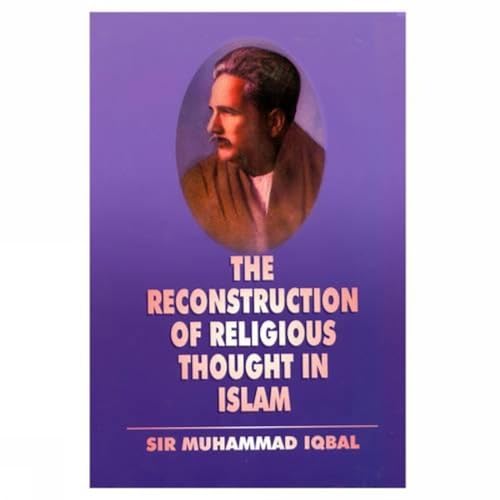Synopsis
The Reconstuction Of Religious Thougt In Islam: Allama M Iqbal [3F7 Hb 247Pp Muhammad Saeed Sheikh Philosophical Revelations Experience. Adam Publishers & Distibuto]
À propos de l?auteur
Sir Muhammad Iqbal (Urdu: ) (9 November 1877 21 April 1938), widely known as Allama Iqbal ( ), was an academic, poet, barrister, philosopher, and politician[1] in British India who is widely regarded as having inspired the Pakistan Movement. He is considered one of the most important figures in Urdu literature,[2] with literary work in both the Urdu and Persian languages.[1][2] Iqbal is admired as a prominent classical poet by Iranian, Pakistani, Indian, Bangladeshi, Sri Lankan and other international scholars of literature.[3][4] Though Iqbal is best known as an eminent poet, he is also a highly acclaimed "Muslim philosophical thinker of modern times".[1][4] His first poetry book, Asrar-e-Khudi, appeared in the Persian language in 1915, and other books of poetry include Rumuz-i-Bekhudi, Payam-i-Mashriq and Zabur-i-Ajam. Amongst these his best known Urdu works are Bang-i-Dara, Bal-i-Jibril, Zarb-i Kalim and a part of Armughan-e-Hijaz. [5] In Iran and Afghanistan, he is famous as Iqb l-e L hor ( ) (Iqbal of Lahore), and his poetry enjoys immense popularity among the masses, as well as strong support from ideologues of the Iranian Revolution. [6][7] Along with his Urdu and Persian poetry, his various Urdu and English lectures and letters have been very influential in cultural, social, religious and political disputes over the years.[5] In 1922, he was knighted by King George V,[7][8] giving him the title "Sir".[9] While studying law and philosophy in England, Iqbal became a member of the London branch of the All India Muslim League.[4][5] Later, in one of his most famous speeches, Iqbal pushed for the creation of a Muslim state in Northwest India. This took place in his presidential speech in the League's December 1930 session.[4][5] In much of Southern Asia and Urdu speaking world, Iqbal is regarded as the Shair-e-Mashriq ( , "Poet of the East").[10][11][12] He is also called Mufakkir-e-Pakistan ( , "The Thinker of Pakistan") and Hakeem-ul-Ummat ( , "The Sage of the Ummah"). The Pakistan government officially named him a "national poet".[4] His birthday Y m-e Wel dat-e Mu ammad Iqb l ( ) or (Iqbal Day) is a public holiday in Pakistan.[13] In India he is also remembered as the author of the popular song Saare Jahaan Se Achcha.[14]
Les informations fournies dans la section « A propos du livre » peuvent faire référence à une autre édition de ce titre.
